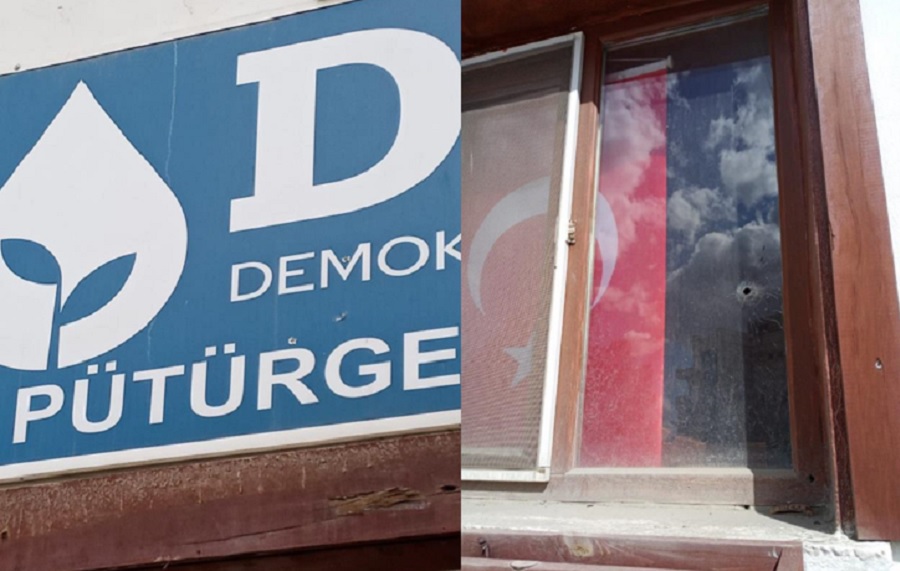Unidentified gunmen on Friday evening fired shots at a district office of the opposition Democracy and Progress Party (DEVA) in the eastern province of Malatya, local media reported on Saturday, citing the party’s leader.
Ali Babacan, the chairman of DEVA, early on Saturday announced on social media that bullets had been shot at at the party’s office in Pütürge, damaging windows and furniture inside.
“We will follow up this attack on our party and our democracy,” Babacan said.
Kimliği belirsiz kişilerce Pütürge ilçe binamıza silahlı saldırıda bulunulmuştur. Değerli il ve ilçe başkanlarımıza ve tüm teşkilat mensubu arkadaşlarımıza geçmiş olsun dileklerimi iletiyorum.
Partimize ve demokrasimize yapılan bu saldırının takipçisi olacağız.
— Ali Babacan (@alibabacan) April 15, 2022
Main opposition Republican People’s Party (CHP) Deputy Chairman Veli Ağbaba condemned the attack on social media adding that the attack should be investigated to identify and punish the perpetrators as soon as possible.
DEVA Partisi #Pütürge ilçe binasına düzenlenen silahlı saldırıyı kınıyor, tüm #DEVA ailesine geçmiş olsun dileklerimi iletiyorum.
Saldırının tüm yönleriyle araştırılarak,suçluların bir an önce tesbit edilip cezalandırılmasını bekliyoruz. pic.twitter.com/44mNkyGYnC— Veli Ağbaba (@veliagbaba) April 16, 2022
Babacan resigned from the ruling Justice and Development Party (AKP), of which he was a founding member, in 2019, citing concerns and disagreements over its direction. After months of rumors circulating about his plans to establish a new party to challenge AKP rule, he unveiled DEVA in March 2020.
The incident comes at a time when Turkey has begun a countdown to its next presidential and parliamentary elections slated for the summer of 2023.
Babacan was one of the six opposition party leaders that came together in February to strategize about the future of the country’s system of governance with the aim of finding a way to work together to unseat President Recep Tayyip Erdoğan, although they didn’t mention him by name in the meeting.
After more than 11 years as Turkey’s prime minister, Erdoğan was elected president in 2014. At the time, the position was primarily ceremonial. But in 2017, Turkish voters approved an executive presidential system, greatly expanding Erdoğan’s powers at the expense of those of the prime minister and parliament. Erdoğan was re-elected the following year. Critics call the system “one-man rule.”

